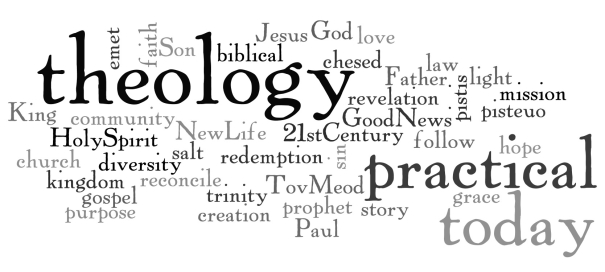During worship this past Sunday, the second Sunday of Advent, we sang one of my favorite Christmas songs, Mary Did You Know. The entire song is pretty powerful, but I am especially drawn to the last verse…
Mary, did you know that your baby boy
Is Lord all creation?
Mary, did you know that your baby boy
Will one day rule the nations?
Did you know that your baby boy
Was Heaven’s perfect Lamb,
And the sleeping Child you’re holding
Is the great, the Great I AM?
Mary’s story is one worthy of consideration and pondering. It’s easy to read the Annunciation (announcement) account of Jesus’ birth (Luke 1:26-38) and miss the significance of the story that Luke wanted Theophilus to understand completely – events foundational to his faith (and I assume, foundational to our faith, twenty centuries later).

The narrative begins with a visit by the angel Gabriel to a young girl in the insignificant town of Nazareth. How insignificant? Luke doesn’t presume that Theophilus has heard of it, so he locates it regionally as “a town in Galilee.” There is no previous mention of Nazareth in the Hebrew scriptures, the Old Testament. In fact, Nazareth is not mentioned in any of the rabbinic literature – the Mishnah or the Talmud. Nor does the Jewish historian, Josephus, make reference to this obscure little village. How insignificant? You may recall that Nathaniel, after being told by Philip that Jesus of Nazareth might be the Messiah said, “Can anything good come out of Nazareth?” (John 1:46).
Obscure and insignificant, indeed. As was Mary. She was just a young teenager (likely 13) that had apparently done nothing of significance. Especially when compared to Zechariah and Elizabeth, the parents of John the Baptist – they were important people in the Jewish religious community, living blameless, righteous lives (see Luke 1:5-9). We know nothing of this young woman’s religious life.
What do we know? We know that Mary was legally pledged to be married to a man named Joseph, a descendent of King David. We know she was a virgin. And we also know that the angel Gabriel showed up in Mary’s life. We don’t know what that encounter looked like. I always pictured him just appearing in her bedroom at night. But he could have just shown up at her house in broad daylight and knocked on the door. No matter, this messenger of God had a message for Mary and he violated Judean social protocol to deliver it. Typically, for a man to greet an unknown woman was taboo, let alone an engaged woman. (Was this a precursor to Jesus’s ministry in which he constantly overstepped social and religious boundaries?)
And greet Mary, he did. Gabriel’s opening line: “Greetings, you who are highly favored! The Lord is with you.” There is so much packed into this opening address from God’s messenger that we may not get beyond it in this post!
The Greek word Luke uses for “highly favored” is kecharitōmenē which is used in only one other place in the New Testament. In Ephesians 1:6 the Apostle Paul speaks of God’s “glorious grace, which he has freely given us,” employing kecharitōmenē to communicate to the Christ-followers in Ephesus they had been favored with grace. Gabriel was communicating to Mary that she was highly favored with grace. As are we, apparently!
Ponder the meaning of kecharitōmenē – that we are highly favored with grace.
Kecharitōmenē is one of those rich Greek words which is difficult, if not impossible, to translate into a single English word, thus favored with grace. The use of kecharitōmenē by Luke and the Apostle Paul is a reminder that grace is reserved exclusively for divine acts. It’s tense (perfect passive particle) drives the point home, with passive as the operative word. What had Mary done to deserve this highly favored status? Nothing! And that’s the point. Zechariah and Elizabeth lived righteous, blameless lives. Yet the same Gabriel did not grant them favored status. It was God-granted to Mary. Unearned. Period.
Gabriel concluded his greeting to Mary with the assurance that “the Lord is with you.” Gabriel didn’t start the announcement with what was about to happen. He began with who was with her – the Lord, Yahweh, the creator of the universe, the one that grants kecharitōmenē. In God’s economy, the importance of who supersedes what or how. I think of Moses’ encounter with God in Exodus 3. God made sure Moses knew that “I will be with you” (vs. 12). God shifted the focus from what Moses was going to do to who was going to be (continually) with him. Mary was visited by the who – the presence of “the ‘with-you-God’ who breaks into the human arena.”* This advent season, may we focus on this who. It’s foundational to our faith.
Something else to ponder: Do we find ourselves focusing on who Jesus is or what he can do for us? The answer might reveal the nature of our followership.
* Edwards, J. R. (2015). The gospel according to Luke. Eerdmans Publishing, Grand Rapid, MI, p. 45

Thank you Curt for your continuing insights.
LikeLike